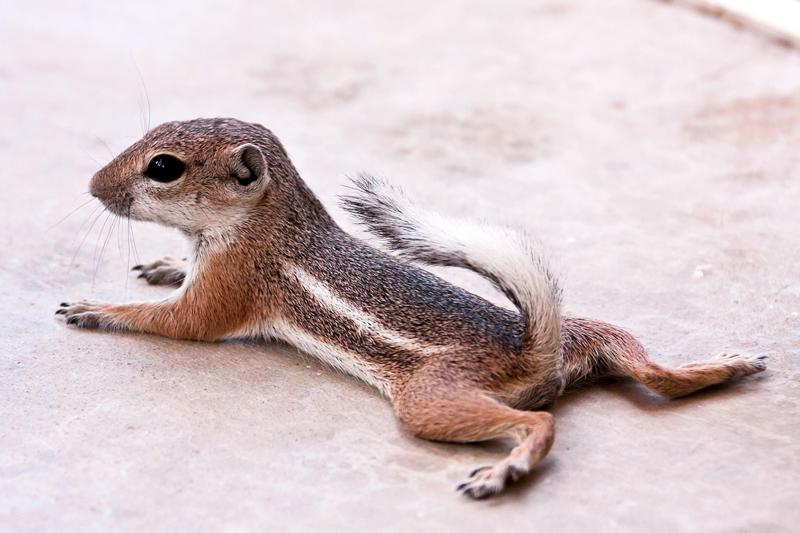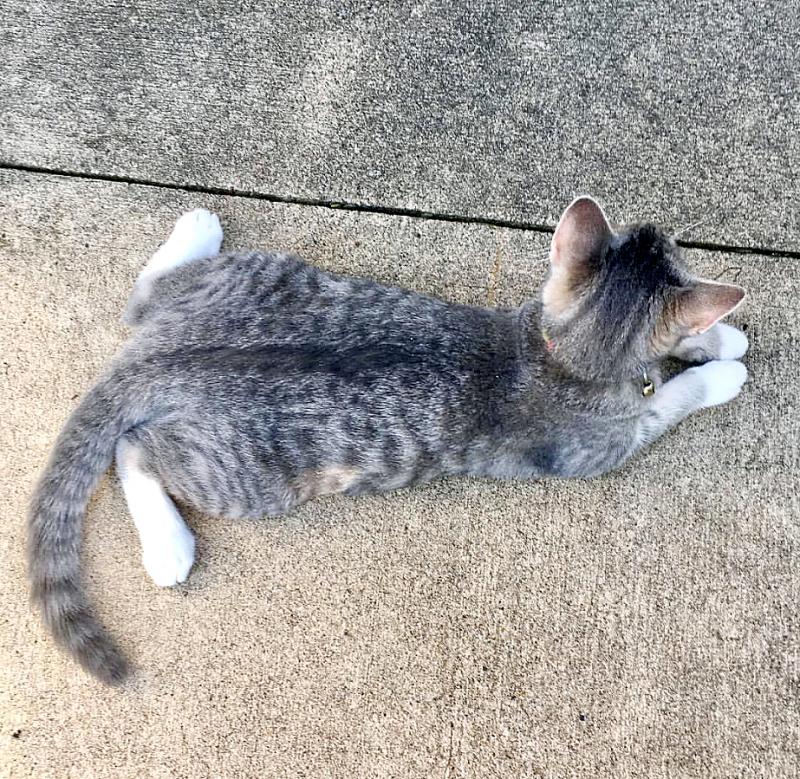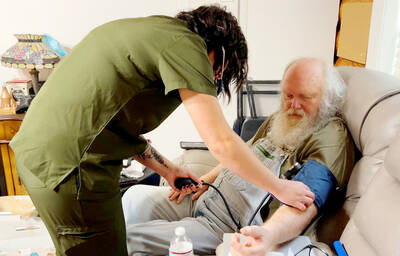It’s baking hot in New York, which can only mean one thing for the city’s small mammal population: it’s splooting season.
This week, with temperatures reaching 35 degrees Celsius, the city’s parks department urged residents not to worry about the health of squirrels seen sprawling on the ground, legs extended behind them like a person whose arms gave out halfway through a yoga class.
“On hot days, squirrels keep cool by splooting (stretching out) on cool surfaces to reduce body heat,” the department tweeted.

Photo courtesy of Pixabay
Perhaps even more remarkable than the phenomenon itself was the word the government agency used. Splooting? Is that a real thing?
The science certainly is. Squirrels’ bellies have less fur than other parts of their bodies, so splooting helps them cool down, says Dan Blumstein, a professor in the department of ecology and evolutionary biology at UCLA. It’s a popular trick among mammals, including the marmots he studies, which “on hot days will lie on rocks as it gets hot, because the boulders are still cooler,” he says.
But until recently, he says, he didn’t know the term “splooting.”

Photo courtesy of James Marvin Phelps via Flickr
“I always called it ‘doing the rug,’” he says.
DOGGO LANGUAGE
Grant Barrett, a lexicographer and co-host of the radio show A Way With Words, explains that the term comes from Doggo language, a form of canine-inspired Internet-speak that has grown into its own tongue.

Photo courtesy of Rochelle Hartman via Flickr
Typically appearing on social media with pictures of dogs, the language features an array of cutesy words including “bork” (a version of “bark”), “mlem” (a kind of tongue movement) and “pupperino” (self-explanatory).
Like squirrels and marmots, dogs sploot. Corgis, stubby legs sticking out behind them, are particularly adept at it and may deserve credit for inspiring the term — though pinpointing its exact origin may be an exercise in futility, Barrett says. “It would take you days or even a week to slog through all of the posts and comments in these [doggo-focused] groups to figure out who first said it.”
Also deserving of credit, according to Barrett: Australians. Doggo reflects “an Australian way of creating those kinds of cutesy words, and ‘doggo’ itself just seems so much like an Australian word. You can’t prove it, because this kind of stuff is loosey goosey,” Barrett says. But “if you look at the Facebook groups for this kind of language, some of the earliest ones do seem to have a lot of Australians in them.”
The earliest use of the term he could find was around 2011, which aligns with the findings of Kory Stamper, lexicographer and author of Word by Word: The Secret Life of Dictionaries. The word “didn’t have much use in printed, edited prose, however, and maintained a pretty low profile — it stayed splooted, if you will — until very recently,” she wrote in an E-mail. “It seems like newspapers and magazines discovered the sploot in about 2020.”
It might be a variation on “splat,” Stamper wrote, “and that would actually fit its pre-corgi history nicely.” Sploot “has been used in cartoons as one of those onomatopoeic sound descriptions since at least the 1950s; it seemed to be a favorite of the folks behind the Bugs Bunny comic.” It also calls to mind the word “splay,” as a caller to Barrett’s show noted.
DOES IT WORK FOR HUMANS?
Whatever the origin, the word confers a certain respect on the animals we apply it to, Barrett says.
“I think that this whole batch of language really also comes from not just your natural tendency to talk to animals in a cute way, like you would a baby, but in your natural tendency to welcome them as a thinking being,” he explains. “By naming this action that is so common among animals, you’re giving them agency.”
So are these mammals on to something? No squirrel was willing to comment on the record, so a Guardian reporter ran around the block in 32 degrees Celcius heat, then splooted on his apartment floor. While it may have been marginally cooler than remaining standing, it wasn’t particularly comfortable.
Nor was it satisfying enough to justify such socially questionable behavior, even with a shirt partially lifted to simulate the thinner belly fur Blumstein described.
But humans have our own ways of dealing with heat — such as the shower required after floor-splooting — as do other animals we might see in our neighborhoods. Birds, Blumstein notes, sometimes pant like dogs.
“They open their mouths and they sort of hunch down a little bit and their tongues are out; they don’t look very happy.”
“Clearly,” he says, “a hotter world is changing the behavior of animals.”

When Taiwan was battered by storms this summer, the only crumb of comfort I could take was knowing that some advice I’d drafted several weeks earlier had been correct. Regarding the Southern Cross-Island Highway (南橫公路), a spectacular high-elevation route connecting Taiwan’s southwest with the country’s southeast, I’d written: “The precarious existence of this road cannot be overstated; those hoping to drive or ride all the way across should have a backup plan.” As this article was going to press, the middle section of the highway, between Meishankou (梅山口) in Kaohsiung and Siangyang (向陽) in Taitung County, was still closed to outsiders

President William Lai (賴清德) has championed Taiwan as an “AI Island” — an artificial intelligence (AI) hub powering the global tech economy. But without major shifts in talent, funding and strategic direction, this vision risks becoming a static fortress: indispensable, yet immobile and vulnerable. It’s time to reframe Taiwan’s ambition. Time to move from a resource-rich AI island to an AI Armada. Why change metaphors? Because choosing the right metaphor shapes both understanding and strategy. The “AI Island” frames our national ambition as a static fortress that, while valuable, is still vulnerable and reactive. Shifting our metaphor to an “AI Armada”

US President Donald Trump may have hoped for an impromptu talk with his old friend Kim Jong-un during a recent trip to Asia, but analysts say the increasingly emboldened North Korean despot had few good reasons to join the photo-op. Trump sent repeated overtures to Kim during his barnstorming tour of Asia, saying he was “100 percent” open to a meeting and even bucking decades of US policy by conceding that North Korea was “sort of a nuclear power.” But Pyongyang kept mum on the invitation, instead firing off missiles and sending its foreign minister to Russia and Belarus, with whom it

The older you get, and the more obsessed with your health, the more it feels as if life comes down to numbers: how many more years you can expect; your lean body mass; your percentage of visceral fat; how dense your bones are; how many kilos you can squat; how long you can deadhang; how often you still do it; your levels of LDL and HDL cholesterol; your resting heart rate; your overnight blood oxygen level; how quickly you can run; how many steps you do in a day; how many hours you sleep; how fast you are shrinking; how